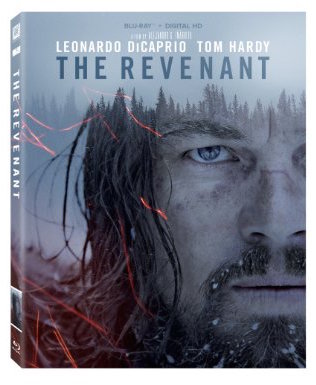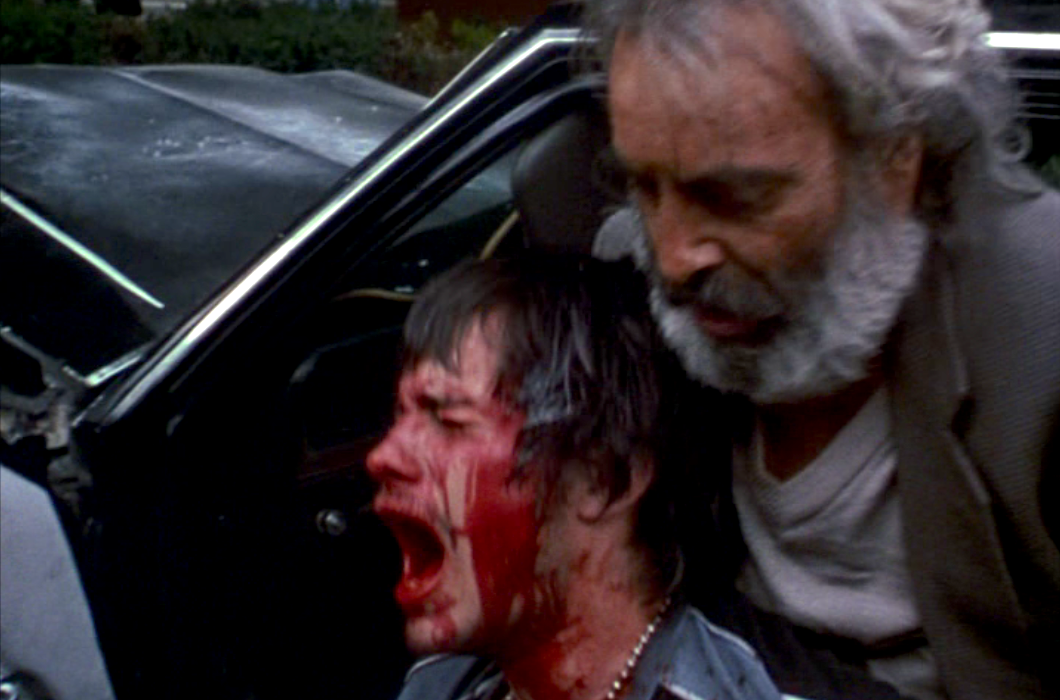 Eric here to discuss cinema’s currently-most-celebrated director, Alejandro Gonzalez Inarritu. As Nathaniel has noted previously, all six of Inarritu’s feature films have gotten Oscar attention in one way or another, and of course much has been written about his being the first filmmaker since 1950 to win the Best Director Oscar two years in a row. He's also just been named to the Time 100 "Icons" List. So there’s no better time than to look back to Inarritu’s first feature, 2000’s Amores Perros, to see where he started and where he’s landed.
Eric here to discuss cinema’s currently-most-celebrated director, Alejandro Gonzalez Inarritu. As Nathaniel has noted previously, all six of Inarritu’s feature films have gotten Oscar attention in one way or another, and of course much has been written about his being the first filmmaker since 1950 to win the Best Director Oscar two years in a row. He's also just been named to the Time 100 "Icons" List. So there’s no better time than to look back to Inarritu’s first feature, 2000’s Amores Perros, to see where he started and where he’s landed.
Watching Amores Perros (2000) for the first time since its initial release, I was struck by how even at the start of his career, Inarritu picked extraordinarily difficult environments to shoot in. The logistics for Amores Perros can’t have practically been much easier than the ones we are all sick of hearing about with The Revenant. His debut feature has him shooting all over Mexico City (inarguably one of the world’s most chaotic cities), with a colossally large group of actors, and constructing a large-scale and crucially precise car wreck sequence that pays off to all three of the film’s narratives in different ways. Plus throw in a lot of very difficult (and legally tricky) scenes with huge groups of dogs fighting, bleeding, and getting shot. Inarritu’s self-masochism was alive and well from the very start. [More...]
This debut feature also clocks in at over two and a half hours, and the script has Inarritu juggling temporal shifts and shifting POVs continuously. The film is split into three chapters, the first covering two brothers pushing dark fates; the second centering on a wealthy man who leaves his family to be with his hot model mistress; and the third about a revolutionary seeking redemption. Contrary to Emmanuel Lubezki’s ravishing cinematograpy in the Leo epic, Amores Perros is shot in a grainy and immediate style, with the camera pushing uncomfortably close into the actors’ faces. There is nothing “beautiful” in this first film, but I’d argue that Amores Perros comes closer to cinematic poetry than Inarritu’s most recent effort.
The poetry Inarritu achieves here, a gritty urban dance across economic lines, neighborhood borders, and lost loyalties, comes straight from Inarritu’s humanity. In Amores Perros, Inarritu makes it clear that the human desire to want more or to want something else…and the fallout that comes with it…crosses all boundaries. He feels for all of these characters, and in their fates creates a tragicomedy of sorts. Inarritu recognizes the classicism in the script (time and choices play out in Shakespearean-like ways) yet the multiple endings don’t feel too clunky or overly neat. Certainly the middle story, where the wayward husband ends up with his beautiful model minus one of her gorgeous legs, is one of the more darkly comic twists on the fantasy of every man in midlife crisis. That ending, with the two of them trapped in the perfect apartment they planned for their perfect life together, is right out of Sartre.

Several of Inarritu’s greatest strengths as a director are already present here. First is his love of actors: you can feel his love for them in those tight close-ups. He gets very complex work out of these actors (especially a young Gael Garcia Bernal), a trait he has only refined and improved upon, reaching its zenith in both the individual and collective ensemble work he got from everyone in Birdman. And Inarritu’s artful collaboration with his key creative staff is evident, too: the art direction and camerawork in Amores Perros captures subtle details that establish the brothers’ home, the dogfighting world, and the upper-middle-class milieu…we see several Mexico Citys in this film, which of course is the truth of that city.
Much of the criticism levied upon Inarritu to date has been his overly-grim awfulization of life, and I suppose it’s true that nobody will accuse him of directing with a light hand. But I’d argue that each of the films between his debut movie and his latest—21 Grams, Babel, Biutiful, and Birdman—have greatness in them. Sometimes the more leaden elements become overbearing, but this is a director taking on huge ideas and isn’t afraid of falling on his face. It’s the sheer risk of the subject matter, and the honest exploration of it, that have established Inarritu as one of the world’s greatest filmmakers.
Therefore, nobody should have been happier than I to see him win his second Oscar this year, but I think he won for most directing rather than best. This seems even more true rewatching Amores Perros: yes some of it is messy, but I’d say gloriously messy, and it’s a relief to watch Inarritu shoot a movie where not every single shot is constructed within an inch of itself as he did in The Revenant. With The Revenant, every shot is so damn beautiful that almost none of them are actually memorable. I fear Inarritu is becoming overly studied.

Even sadder is that all of his first five messy movies were about complex characters and gigantic global themes, purveyed through a bleeding passionate heart…whereas The Revenant had a single-focused hero foisted into a story without much moral complexity. Nobody can claim the director is going “backwards” since the technical filmmaking of The Revenant, with several of the greatest craftsmen in the industry working at the peak of their ability, is beyond reproach. But outside of the technical achievements, Inarritu hasn't moved forward with this last film, either, as it’s far less ideologically complex than Birdman.
It’s unlikely that Inarritu will ever abandon his need to shoot logistically elaborate films, and we wouldn’t want him to, as the joy of his movies comes from his virtuosity in those situations. But maybe next time out he’ll remember his early days and how sometimes being less tidy is ultimately more beautiful.
